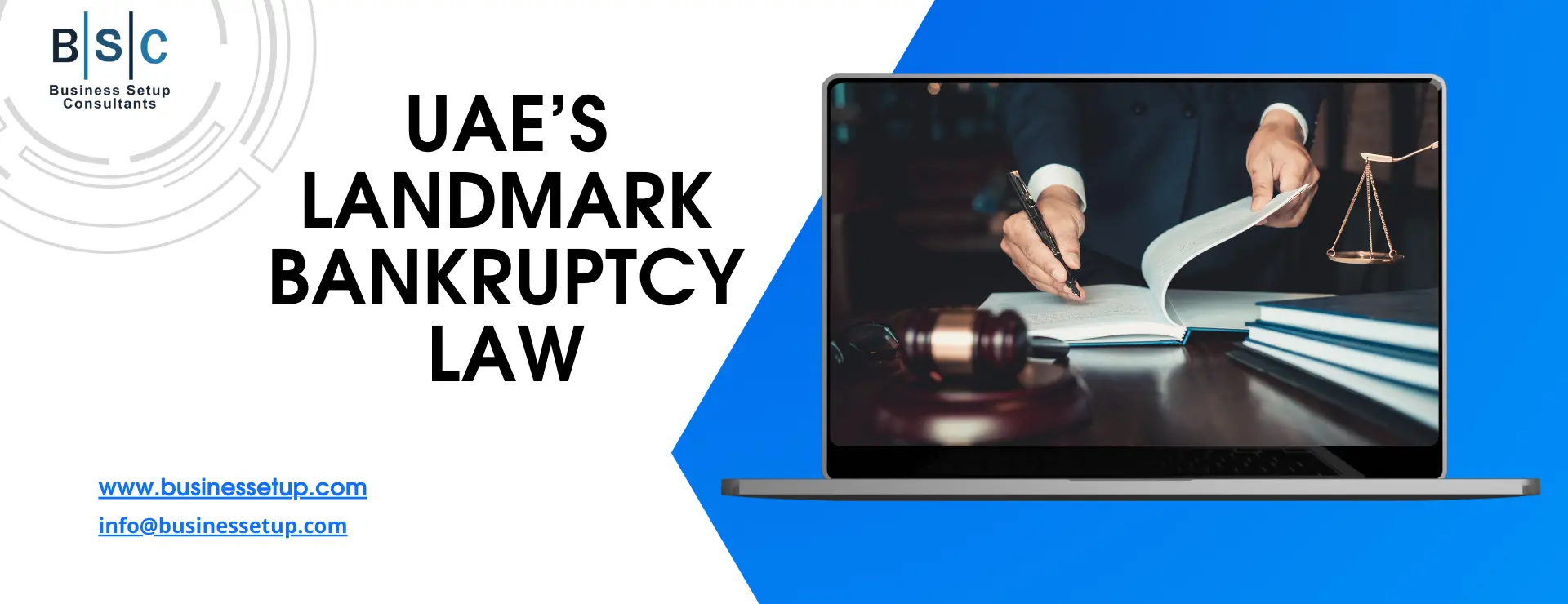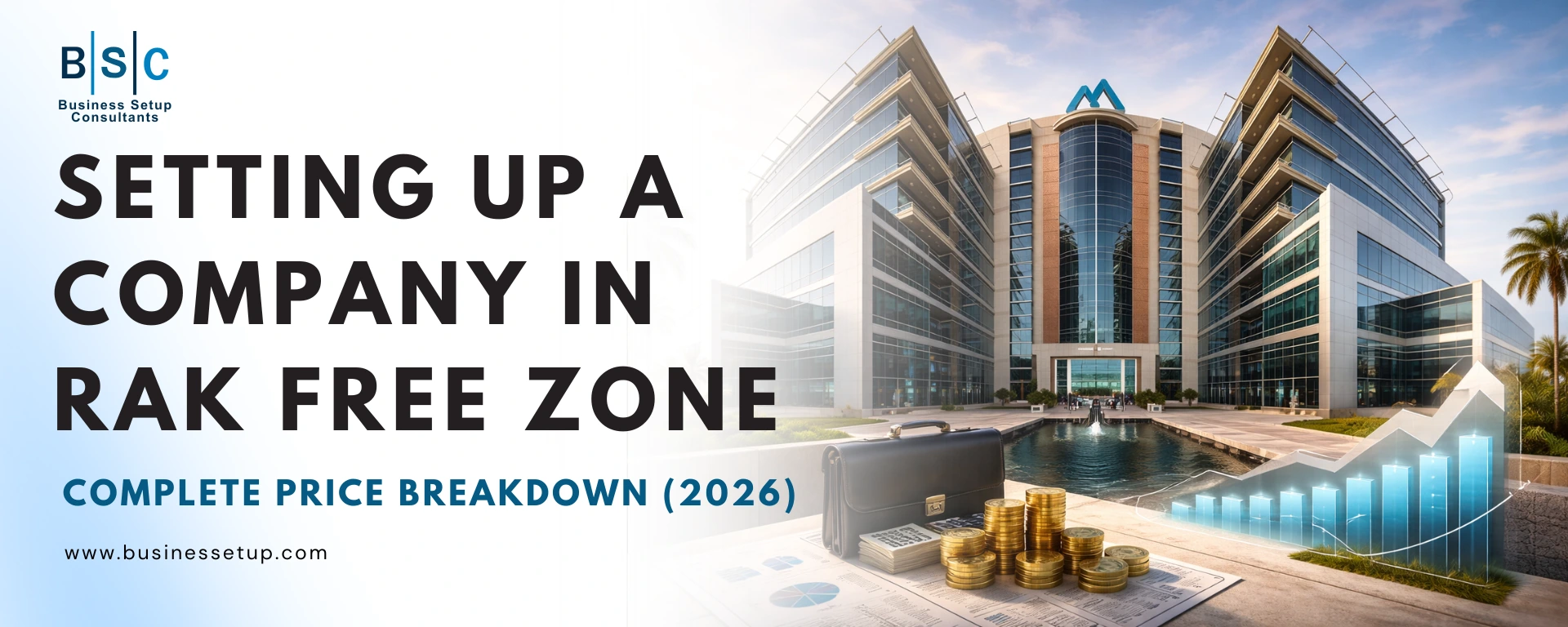
UAE’s Landmark Bankruptcy Law
UAE’s Landmark Bankruptcy Law
The reasons to start a business is Dubai are known to all. A tax-free milieu, world-class infrastructure, 0% capital, lucrative foreign ownership and trading laws and access to human capital from across the world.
Get set for yet another reason to set up or continue to operate your business in Dubai. UAE’s new landmark bankruptcy law , based on modern legislative principles, aims to reduce the risks of doing business and increase the setup of small to medium businesses in the country.
Expected to take effect by the beginning of 2017, this law will establish a regulatory body, the Committee of Financial Restructuring, which will stipulate principles to allow businessmen to avoid time in jail if their companies fail to pay debts. Adding to the ease of investment and doing business in the country, the new law will decriminalise debt and give protection to businesses facing financial distress and fearing the risk of being jailed. Such a situation in the past has forced many to flee the country and leave behind huge unpaid debts.
Highlights of the UAE Bankruptcy Law
Key Provisions of the Law
The UAE’s new bankruptcy law, introduced in 2023, represents a significant shift in the country’s approach to insolvency. Departing from the previous focus on personal liability, the law now embraces a more debtor-friendly framework, providing businesses with a lifeline to navigate financial difficulties.
One of the key highlights of the new bankruptcy law in UAE is the emphasis on restructuring plan and preventive settlement. This allows distressed companies to proactively engage with their creditors and negotiate a path forward before reaching the point of outright insolvency proceedings or bankruptcy proceedings. By offering this proactive approach, the law aims to help businesses address financial difficulty and fulfill their financial obligations without the threat of personal liability.
Specialized Bankruptcy Courts
Complementing the debtor-friendly provisions, the new law also establishes specialized bankruptcy courts, staffed by legal professionals with expertise in insolvency law and dispute resolution. These dedicated tribunals are tasked with overseeing the complex bankruptcy cases, ensuring a fair and transparent process that balances the interests of both debtors and secured creditors.
Impact on Businesses
Improved Access to Credit and Financing
The introduction of the new UAE bankruptcy law is poised to have a transformative impact on the country’s business landscape. One of the most significant benefits is the improved access to credit and financial services for businesses.
By providing a clear legal framework for debt restructuring and safeguarding the rights of secured creditors, the law has enhanced the confidence of financial institutions in extending credit, even to companies facing financial difficulty. This improved access to capital is a crucial enabler for the growth and competitiveness of the UAE’s commercial companies.
Reduced Stigma Associated with Bankruptcy
Furthermore, the new law has effectively reduced the stigma associated with bankruptcy. By shifting the focus from personal liability to financial difficulty, the legislation encourages distressed companies to explore options for rehabilitation and recovery. This shift in mindset is exemplified by the Marka case, where the company successfully underwent a restructuring and emerged as a more financially stable and competitive entity.
Does the law cover all companies?
It will cover state-owned and private companies with few exceptions, such as firms based in the UAE’s special Free Zones.
What are the exceptions?
While the new law will spell relief for businesses, it will not apply to businessmen who are already facing criminal cases due to unpaid debt. Also, businessmen will face a prison sentence of up to five years and a fine of up to 1 million dirhams if their companies fail to pay debts and deliberately avoid filing for bankruptcy. Further, the law will be applicable to commercial companies, not individuals.
Other perks
The bankruptcy law will also allow businesses the possibility of getting fresh loans under terms set by it.
As a business solutions advisory firm, we at BSC, we help you explore the myriad company formation and UAE residency options available. A team of passionate and professional consultants, we offer the most optimum experience through knowledge of UAE’s free zones, expertise and understanding your objectives.
Challenges and Considerations
Awareness and Understanding Among Businesses
While the UAE’s new bankruptcy law has been widely praised, it is not without its challenges and considerations that must be addressed for its effective implementation.
One of the primary concerns is the need for widespread awareness and understanding among the business community. Many commercial companies, especially small and medium-sized enterprises, may still be unfamiliar with the intricacies of the new law and the various proceedings it encompasses, such as bankruptcy proceedings and insolvency proceedings. Ensuring that businesses are well-informed about their rights and obligations under the new bankruptcy law is crucial for its successful adoption.
Integration with Other Legal Frameworks
Additionally, the law’s integration with other legal and regulatory frameworks, such as UAE labour law and family law, must be carefully navigated. Ensuring seamless coordination between these various legal domains is vital to prevent potential conflicts or unintended consequences that could undermine the law’s effectiveness.
Capacity Building for Professionals
Another key consideration is the need for capacity building among bankruptcy professionals and the judiciary. The specialized bankruptcy courts require legal practitioners with expertise in insolvency law, dispute resolution, and financial restructuring. Developing a pool of qualified professionals versed in the new UAE bankruptcy law is essential to ensure the efficient and effective handling of bankruptcy cases.
Potential for Abuse or Misuse
Lastly, the potential for abuse or misuse of the law must be addressed. Safeguards must be in place to prevent debtors from exploiting the system for personal gain or to the detriment of creditors. The financial restructuring committee and the bankruptcy court must vigilantly monitor bankruptcy proceedings to maintain the integrity of the system and prevent any emergency financial crisis situations from being exploited.








